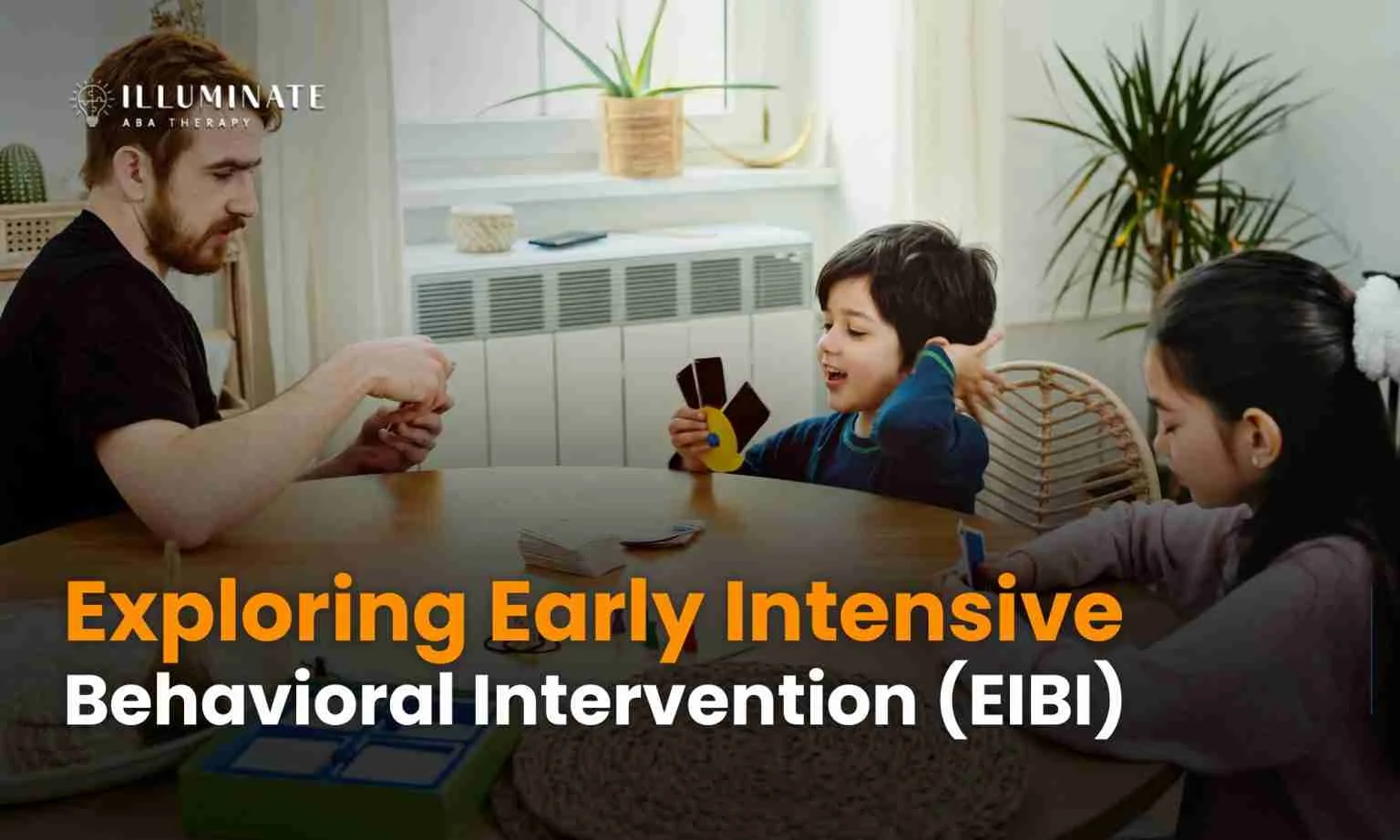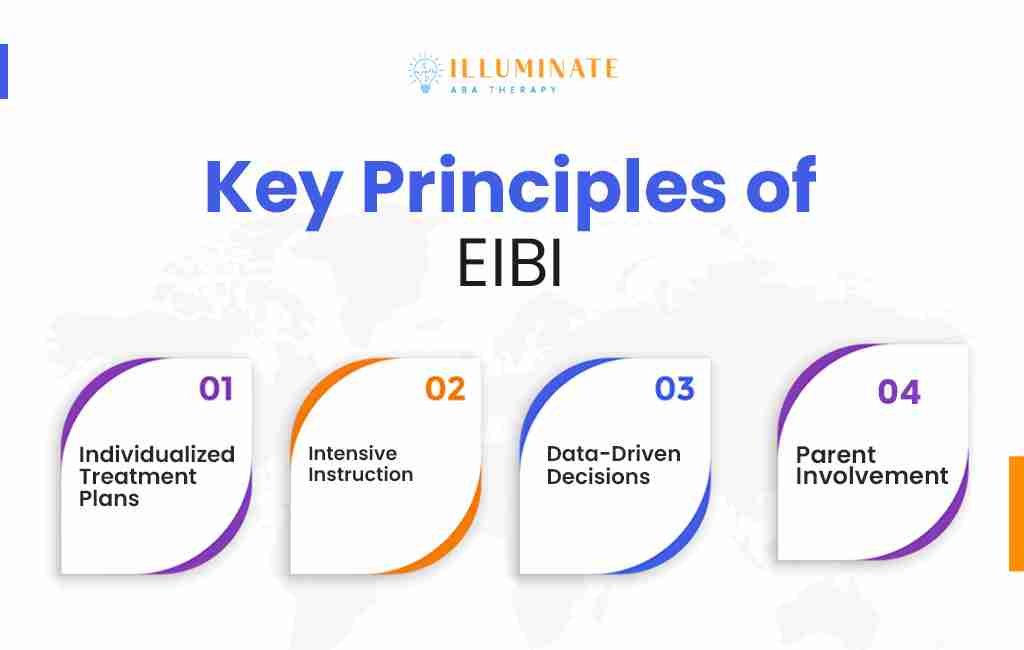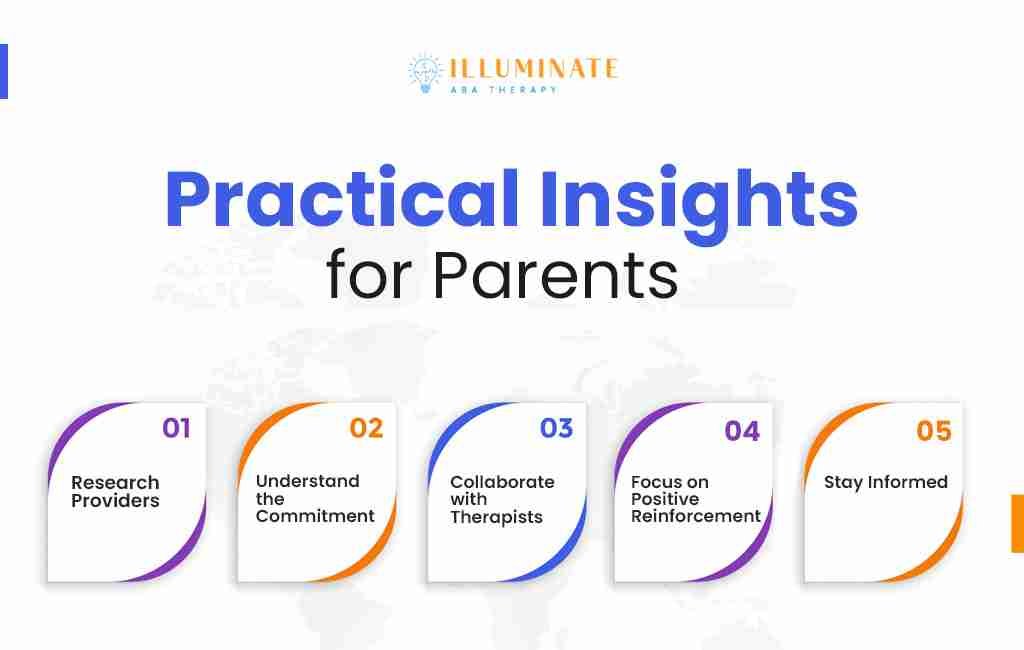Exploring Early Intensive Behavioral Intervention (EIBI)
ABA TherapyJuly 17, 2025

Early Intensive Behavioral Intervention (EIBI) is a specialized approach to therapy that focuses on children with autism spectrum disorder (ASD). This method is rooted in Applied Behavior Analysis (ABA) and is designed to provide intensive, individualized support during the critical early years of development.
In this blog post, we will explore the principles of EIBI, its effectiveness, and practical insights for parents and caregivers considering this intervention for their children.
What is Early Intensive Behavioral Intervention?
Conclusion: The Path Forward with Motivating Operations
EIBI is an evidence-based treatment that typically involves structured, one-on-one therapy sessions for children with autism. The goal of EIBI is to improve communication, social skills, and adaptive behaviors through systematic teaching techniques.
The intervention is usually implemented when children are between the ages of 2 to 6 years old, as research indicates that early intervention can lead to significant improvements in developmental outcomes.
Key Principles of EIBI

- Individualized Treatment Plans: Each child receives a tailored program based on their unique strengths and needs. This personalized approach ensures that therapy targets specific areas for growth.
- Intensive Instruction: EIBI typically involves a high frequency of therapy sessions—often 20-40 hours per week. This intensity allows for more opportunities to learn and practice new skills.
- Data-Driven Decisions: Progress is continuously monitored through data collection, allowing therapists to adjust strategies based on the child's performance and responsiveness.
- Parent Involvement: Parents play a crucial role in EIBI. Training and support are provided to help them implement strategies at home, reinforcing skills learned during therapy sessions.
The Effectiveness of EIBI
Numerous studies have demonstrated the effectiveness of EIBI in improving various aspects of functioning in children with autism. Research indicates that early intervention can lead to:
- Enhanced language and communication skills
- Improved social interactions
- Increased independence in daily living activities
- Better academic performance
A meta-analysis published in the Journal of Autism and Developmental Disorders found that children who received EIBI showed greater gains in IQ scores compared to those who did not receive early intervention. These findings underscore the importance of starting therapy as early as possible.
Practical Insights for Parents
If you are considering EIBI for your child, here are some practical tips to help you navigate the process:

Research Providers
Look for ABA providers who specialize in EIBI and have a proven track record of success. Check credentials, ask about their approach, and read reviews from other parents.
Understand the Commitment
EIBI requires a significant time commitment from both parents and children. Be prepared for regular sessions and practice at home to reinforce learning.
Collaborate with Therapists
Maintain open communication with your child’s therapists. Regular meetings can help ensure everyone is aligned on goals and strategies.
Focus on Positive Reinforcement
Positive reinforcement is a cornerstone of ABA practices. Celebrate small victories to motivate your child and encourage continued progress.
Stay Informed
Educate yourself about autism and behavioral interventions. Knowledge empowers you to advocate effectively for your child’s needs.
Challenges and Considerations in Early Intensive Behavioral Intervention (EIBI)

While Early Intensive Behavioral Intervention (EIBI) has shown significant promise in improving outcomes for children with autism, it is essential to recognize the challenges and considerations that families may face when pursuing this intervention.
Understanding these potential hurdles can help parents prepare and navigate the process more effectively.
Cost
One of the most significant barriers to accessing EIBI is the cost associated with intensive therapies. Here are some key points to consider:
- High Expense: EIBI typically requires a commitment of 20-40 hours of therapy per week, which can lead to substantial costs. Depending on the provider and location, families may find themselves facing bills that range from several thousand to tens of thousands of dollars annually.
- Insurance Coverage: Insurance coverage for EIBI varies widely among providers and states. Some insurance plans may cover a portion of the costs, while others may not cover EIBI at all. Families should carefully review their insurance policies and advocate for coverage when possible.
- Financial Strain: The financial burden can be overwhelming, especially for families with limited resources. This strain may lead some parents to forgo necessary interventions or seek less intensive options that may not yield the same positive outcomes.
Availability
Access to qualified EIBI providers can also pose a significant challenge:
- Limited Providers: In many regions, there may be a shortage of professionals trained in EIBI and Applied Behavior Analysis (ABA). This scarcity can make it difficult for families to find qualified therapists who can provide high-quality intervention.
- Geographic Barriers: Families living in rural or underserved areas may have even fewer options available. Traveling long distances for therapy sessions can be impractical and time-consuming, adding additional stress to an already challenging situation.
- Waitlists: Even in areas where EIBI providers are available, families may encounter long waitlists due to high demand. This delay can hinder timely access to critical intervention during a child's early developmental window.
Emotional Toll
The journey through EIBI can be emotionally taxing for both children and their families:
- Stress and Anxiety: The process of seeking diagnosis, navigating treatment options, and managing therapy schedules can create significant stress. Parents often feel anxious about their child’s progress and future outcomes, leading to emotional fatigue.
- Parental Guilt: Many parents grapple with feelings of guilt or self-doubt regarding their child’s diagnosis and the choices they make about interventions. They may worry about whether they are doing enough or making the right decisions for their child’s well-being.
- Impact on Family Dynamics: The demands of EIBI can strain family relationships. Siblings may feel neglected due to the time and attention devoted to therapy sessions, while parents might find it challenging to balance work, therapy commitments, and personal time.
- Need for Support Networks: Given these emotional challenges, having a robust support network is crucial. Connecting with other families who have similar experiences can provide comfort, understanding, and practical advice. Support groups—whether in-person or online—can serve as valuable resources for sharing experiences and coping strategies.
Final Thoughts
Early Intensive Behavioral Intervention (EIBI) offers a powerful tool for supporting children with autism during their formative years. By focusing on individualized strategies, intensive instruction, and active parent involvement, EIBI can foster significant developmental gains.
If you are considering this approach for your child, remember that early intervention can make a lasting difference in their life trajectory. As you embark on this journey, stay informed, collaborate closely with professionals, and celebrate every step forward—no matter how small.
Get More Insights On: How to Reduce Aggressive Behavior in Autism
